|
Climate change is a major global challenge, and we as an industrial cluster that unites knowledge-based companies have to message to all that we, the business can play a critical role in addressing it.
So, we believe that by adopting sustainable practices, investing in sustainable technologies, supporting climate policies, and adapting to the impacts of climate change, businesses can help create a more sustainable future for all. Here are a few ways businesses can approach climate change:
Unconditionally, the corporate social business model must also take into account this aspect of the companies' behaviour, namely the fight against climate change and for sustainable development. The Article was first published on the CSKC blog content. According to Deloitte in their document "Preparing tomorrow’s workforce for the Fourth Industrial Revolution For business: A framework for action" many employers are currently struggling to find talent due to the mismatch between skills and employers' needs. Technology has changed the way we work and live, and how businesses are operating. Automation and digitization greatly impact the skills required for specific jobs. But unfortunately a great number of organisations are not prepared for the transition to Industry 4.0, especially in terms of their workforce. This transformation in the new digital era brings in the creation of new jobs, but also the loss of many. Physically demanding, manual or routine jobs will decrease, and those that require problem-solving, flexible responses and customization will increase. In order to support this transition businesses will need to upskill and reskill their employees, and implement a culture of continous learning. L.E.K Consulting's manufacturing survey revealed that automation is motivating decision-makers in manufacturing industries to actively invest in their workforce and four out of five say that they are preparing for an increase in automation technology. In their blog article 'The Smart Way to Prepare Your Workforce for Industry 4.0' L.E.K also suggests following the three Rs approach to preparing workforce of businesses for the transition to Industry 4.0:
The TransIT project, co-funded by the Erasmus+ programme of the European Union, that the Knowledge, Innovation and Strategies Management Club is part of, is developing an innovative curricula, educational methods and training courses that guarantee an effective transition to Industry 4.0 standards. The project will provide a solution for company leaders, industry executives, HR professionals, SMEs and VET centers.
The TransIT project is producing three main elements that together will form a complete training kit, whereas each element will offer strong capacity building and help to successfully adjust to the forthcoming challenges of Industry 4.0 standards regarding the future of work. As part of the Training Kit we are preparing under the TransIT project, we synthesise good management practice enabling the transition to Industry 4.0 with three main overarching topics: innovation thinking, motivation management and technical cooperation. It also consists of the most relevant concepts relating to adaptive management. For more information on this kit - guidebook, read here. The fourth Industrial Revolution (Industry 4.0) is the ongoing automation of traditional manufacturing and industrial practices, using modern smart technology. It is the altering of the way products are created by spreading digitized manufacturing/processing and automation. The goal of Industry 4.0 is to increase the amount of usable data and improve decision making. Nowadays many organisations still don't understand how Industry 4.0 could impact their business as well as are struggling to find the know-how or workforce to support their transition. The Knowledge, Innovation and Strategies Management Club is part of the TransIT project, co-funded by the Erasmus+ programme of the European Union. We are aiming to develop and provide innovative curricula, educational methods and training courses that guarantee an effective transition to Industry 4.0 standards. Moreover, the project is developing work-based competences necessary for managing the transition to Industry 4.0. Read more about the TransIT project's objectives here. The project will provide a solution for company leaders, industry executives, HR professionals, SMEs and VET centers. We strive to inspire these groups to innovate and optimise their potential in the times of transitioning to Industry 4.0. According to Worximity, more and more technologies will be implanted in factories, there will be increase in the human-machine interactions and new jobs will be created, whilst employers will look for a variety of skills related to the transition to 4.0.
In one of their blog articles, Worximity suggests a number of tips to address the changes impacting the workforce in the era of Industry 4.0.
Following the publications on our blog in the BASET project’s site - www.baset.info, let me share as a mentor and management consultant, what questions I would ask social entrepreneurs at my first meeting with them. The proposed questions neither exhaust all possibilities, nor claim universality. Any one of us - mentors and consultants - could ask more or less the questions below, depending on their own experience and concrete case. Nevertheless, I believe that at the very beginning of starting my work with my client – the social entrepreneur, I have to sketch a general picture of the business idea and to understand the profile of the owner of it. Questions to ask social entrepreneursSo, let me describe these questions with more details: 1. The first question concerns the motivation of the person. I would be very keen to have an idea what his/her motivation is and why he/she would like to start his/her own business in the areas of tackling social challenges and problems. I will ask the entrepreneur whether he/she knows what the expected impact is and whether he/she will rely on sustainable decisions. What the vision and mission are and how they are described? What does lead the entrepreneur to the realization of this idea? 2. Secondly, it is commonly accepted that the inherited mentality of people is an important factor of their decisions to become entrepreneurs and to help other people. I would ask them to share with me whether in their family they have entrepreneurs or people who have led other people and managed projects, and if they have received tips and good examples from them? Or maybe they have been instructed or influenced by other leaders or concrete examples in a national or global context? 3. Next question concerns important competences. Does the entrepreneur know the social issues he or she will have to deal with as an entrepreneur and could he/she share with me what knowledge and competences still lack about this area, as well as for the economy and management of the company or the organization, which the entrepreneur plans to start-up or scale-up? Does the entrepreneur know well what difficulties and challenges await him on the way? 4. The 4th question concerns what skills the entrepreneur would be able to rely on, so the social venture is successful? Does he or she know what skills they lack for being successful social entrepreneurs?? 5. Next, I would like to know whether the entrepreneur has personal experience in working with social projects and/ or with doing classic business? I will ask the entrepreneur about his or her experience in a social enterprise or in a network that supports social causes? Any information I will receive about the previous experience of the social entrepreneurs can be very supportive for me as a mentor and consultant? 6. My 6th question will be about empathy. I will be very interested to know what is the reason that the entrepreneur would like to be involved in solving social challenges. Whether this is philanthropy, social responsibility, the belief that everything is in our hands and this is their philosophy of life, or the understanding that every business is social when it is innovative, and that the social business model is more efficient in comparison with the classic ones, or this is a better approach of searching for justice, or for solving global problems, or all these things? Also, I would be very interested to understand if the entrepreneur is ready to achieve the goal, despite the anticipated difficulties and losses and he/she is ready to work hard towards reducing the risks of failure to a minimum? 7. The 7th question concerns the leadership and is one of the most important for me. I would be very curious to understand what the entrepreneur thinks about him/herself as a leader who can engage other people in solving the tasks and achieving social impact? What qualities are needed and are useful to become a business leader as well? Does the difference between the two types of leadership is known? 8. Next question concerns the integrity. Whether the entrepreneur knows the moral and ethical norms of doing business in regard to users, investors, customers, beneficiaries, competitors, suppliers, consultants, etc.? Is the entrepreneur ready to give up of the ideas and goals for achieving financial and social impact, if this overrides the norms? 9. The 9th question is about what is the social intelligence of the entrepreneur I would be engaged to work for. Can the entrepreneur find stakeholders, supporters, partners and/ or a network of contacts that support their mission and intend to achieve specific social effects? How does he/she plan to include them in their initiative / project / enterprise to increase their chances of success? 10. And finally, the 10th and may be the most important question concerns the business model. Does my trainee or mentee have an initial idea of how he/she will create and sell something useful to the users, and how the target group will benefit? I would like to receive simple answers to the questions: who, why, what, how, to whom, and where? Can my mentee develop a more detailed operational business plan and do they know where they would seek some help?
This package of questions may look quite large but form my experience any professional mentor, coach, consultant, or trainer can succeed of collecting all those answers within 30 minutes. The professionals can also use ready questionnaires that are included in our SEDM model and are posted in the site as self-evaluation questionnaires https://www.baset.info/for-social-entrepreneurs.html . After making this preliminary picture of the business idea and the profile of the social entrepreneur, we can proceed with creating an individual plan for working with him or her. Author Dimitar Hristov Knowledge, Innovation and Strategies Management Club (KISMC) www.innovation-mc.com 7 fascinating conclusions from the international conference "INNOVATION - Creating the Future"12/12/2016 The international conference "Innovation - Creating the Future" was attended by more than 200 delegates from over 15 countries, brought businesses and universities together and provoked them to brainstorm on how to work together for a better future for both parties and how innovation could be an integral part for a better collaboration. After months of preparation and challenges the team at the Knowledge, Innovation and Strategies Management Club together with the State University of Library Studies and Information Technolgies and the partners from the Erasmus+ funded APInno project did host not only a successful event summarising the benefits the results of the project will bring, but an event full of excitement, great networking and plenty of follow ups bringing potential opportunities for everyone. There have been missed flights, travelling for days to come from the other side of the globe, emotions, exhaustion, sleepless nights for some but the enthusiasm and the sparks around the conference main hall and additional rooms were simply amazing. The whole APInno team were also extremely delighted to have 20+ universities from different countries, 80+ companies, social partners and policy makers which contributed to a valuable discussion throughout the whole day of 21 November 2016 in Sofia, Bulgaria. If you missed the opportunity to join us at this illuminating event, we have recapped 7 conclusions drawn from the conference day below. 1. Innovation for collaboration needs a structured process Innovation plays a focal role in the university and business collaboration BUT this role needs to be structured the same way innovation is a systematic process. Therefore, after trials and erros for 2 years the APInno project established an innovation management methodology which is based on expriential learning in order to bridge the large gap between what workforce universities 'produce' and what companies actually need. The methodology shows us that from the messy idea generation moment through concept development and pipeline management, execution and implementation have to follow. 2. The university model requires a fundamental change The public is already beginning to question the value higher education provides to society. It is obvious that things need to change as we can all observe how students have troubles finding appropriate jobs after graduating and trying to settle their debts which they took to be able to study at a university. Therefore, instead of making money and contributing to the economy, students waste time and incur expenses. Yes, the university model needs to be fundamentally altered so they could feed businesses with the energy and enthusiasm of skillful employees ready to 'fight' in a competitive world where innovation is not only a buzz word but reality. 3. Innovation is not about technology at all We see new mindsets, new generations, new organisations appearing on the horizon. We also see new markets emerging. The world has moved from having thousands of businesses each with millions of customers to millions of businesses with hundreds of thousands of customers. This is a result from shifting to technology-supported industries. However, innovation is not about technology at all, it is about how we efficiently and effectively use what we have in order to produce value for ourselves and others. 4. Design thinking - a buzz word for business success? Perhaps most people have already observed that creativity and innovation have become buzzwords for business success, followed by terms such as ‘Design Thinking’ creeping into business education. However, some research shows us that there is around 20% decline in creative capacity of learners in the past 20 years. In an era when creativity is in demand, we need to first understand the creative thinking process and the difference between implementation (doing things that are determined by others and matching against their expectations) and innovation (producing multiple and varied solutions that respond to change and often surprise). 5. Entrepreneurs have to focus on designing The entrepreneurial journey is simple: starts from an idea, right through a business model to the business plan. However, entrepreneurs need to take into consideration the market desirability, financial viability and technical feasibility of the business they are trying to establish. Therefore, designing a business model is the essence of a business opportunity, whether it is to be pursued in a start-up, corporate venturing or social entrepreneurial setting. 6. Balance the academic and commercial interests Universities are a great source for technological opportunities for creating high-technology ventures. Despite that, universities are generally characterized as having weak capabilities for the development of commercial applications. The academic culture values getting its hands on research, but the commercial and entrepreneurial aspect comes right outside it and this is a sensitive issue. Academia has to develop not only creative and confident minds but commercially oriented graduates prepared for the business challenges they will come across. 7. Internships and real work for students is a must The APInno project has proven once again the importance of business and academia partnership. But the collaboration focuses on the topic of innovation and this has brought new amazing ideas for future work on assisting the two parties. The project sets out important points to look at, for example, how such collaboration can accelerate the university-work transition for students through internships and how setting real innovation challenges to be solved by students could be a real asset for businesses. Indeed, it's a win-win for everyone.
Don’t miss out on a conference programme featuring speakers from the UK, Spain, South Africa, Romania and Bulgaria who have international exprience in various industries in the area of innovation, entrepreneurship and education. The event is almost fully booked and we don’t want you to miss out on this opportunity where you have the chance to not only get into great discussions Innovation in Education & Education in Innovation, but play games and network with over 150 guests from 15+ countries. With only a few days until the "INNOVATION - Creating the Future" conference opens its doors on 21 November 2016 in Sofia, Bulgaria, there are still 18 places left (at the time of speaking). Of course, if these are taken up fast, then you would get on our reserve list and wait until someone already registered drops out. Therefore, you could still have a chance to make the most of such an event and network with all the international delegates on coffee, lunch and a glass of wine by REGISTERING NOW. Having in mind that the conference does not have a registration fee, all you need to do is hurry up and go to the event page, review the information and register as soon as possible in order to secure your spot at the conference. REMINDER: The conference registration is by 17 November 2016 The focus of "Innovation - Creating the Future" would be on opportunities and challenges businesses and universities face in working together for mutual benefits. It will give you the opportunity be to contribute to a positive change in the business-university collaboration through innovation. In this blog publication we are presenting the discussion panels speakers of the international conference "INNOVATION - Creating the Future" which will take place on 21 November 2016 in Sofia, Bulgaria. We have experts and professionals with experience in the field of innovation, entrepreneurship, new business model generation, knowledge management, open innovation and social innovation, design thinking, R&D, business development, startups, NGOs, etc. In the meantime, if you are also curious to review the experience of our keynote speakers, you can find more information here. With the event approaching in less than a week and registration closing on 17 November, you can review the speakers at the two discussion panels Innovation in Education & Education in Innovation below and decide if you would like to come and meet all the speakers and international guests from over 15 countries (the number keeps growing with every post we write).
 Estíbaliz Hernandez is a researcher at Mondragon Innovation & Knowledge (MIK), the research center for organizational management of Mondragon Corporation and is also the Director of the Degree in Business Administration at the Faculty of Business of Mondragon University (Basque Country, Spain), where she is a lecturer too. Both MIK and the University of Mondragon are part of the Mondragon Corporation, a leading Spanish business group, integrated by 250 business cooperatives with presence in 41 countries that employs more than 80 000 people. Her research has been mainly conducted in the field of innovation, entrepreneurship, new business model generation and knowledge management. She is a PhDc in the domain of User Driven Innovation in Service Industries, and holds a degree in Business Administration from the University of Deusto (Spain) and the Hoge Hotelschool Maastricht (Holland) and an MBA Master from the University of Mondragon (Spain).  Pilar Tovar is a Social Educator and Educational Psychologist who works at Fondo Formación Euskadi (Trápaga, Basque Country). She holds a Master Degree on Human Resources and a Master Degree (with Honours) on Social Innovation and Culture Industries and is also an expert on Community Correct Process (PROCC Methodology). For several years, she has jointly been leading Demola Basque Country node as part of the Demola network: a co-creation and open innovation project. Pilar, along with her team, guides companies and students by giving them the opportunity to work together, learn from each other and develop new joint solutions (DEMOS) in a highly innovative environment. As a coach, mentor and facilitator of these projects, she designs her own tools and methodology in social business (Value creation proposition) and open innovation ("Design Thinking", "Thinking out of the box", "learning by doing and solving problems"). Pilar is also a social entrepreneur. For years she has been leading projects with schools, Public Care centers and the Community in healthy diet, launching building relationship promoting social Cohesion, networks, etc.  Magda Ropotan is an Innovation Consultant and Design Thinking Facilitator from Romania. After 13 years of working in human resources for large corporations, such as Honeywell, Genpact and IKEA, both in Romania and internationally, Magda moved into consultancy, supporting companies to innovate organically through the creativity and involvement of their own employees. Her clients range throughout Europe for whom she facilitates innovation projects, training, coaching and consultancy for their innovation strategy. She is also teaching innovation classes within several entrepreneurship education programs in Romania. Magda holds a degree in Robotics Engineering and studied about innovation, foresight, design thinking and trends in Silicon Valley, Denmark and Netherlands. Watch the conference video now!
|
KISMC TeamBlog post by our team, innovation contributors, VIP members, blog guests, etc. Archives
January 2024
Categories
All
|
|
The Knowledge, Innovation and Strategies Management Club is a non-profit organisation set up in Sofia, Bulgaria in 2012 to foster knowledge and innovation management across South East Europe. KISMC is supporting the development of the innovation ecosystem in the region by bridging the gap between education, research and business.
|
© COPYRIGHT 2013- 2021. KISMC. ALL RIGHTS RESERVED.
|


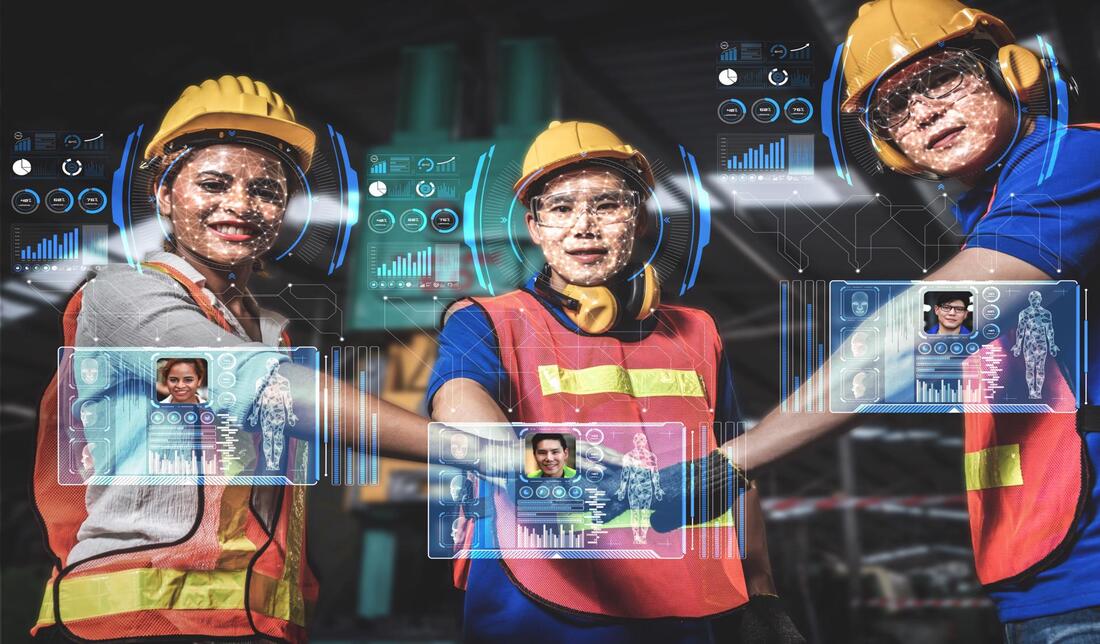
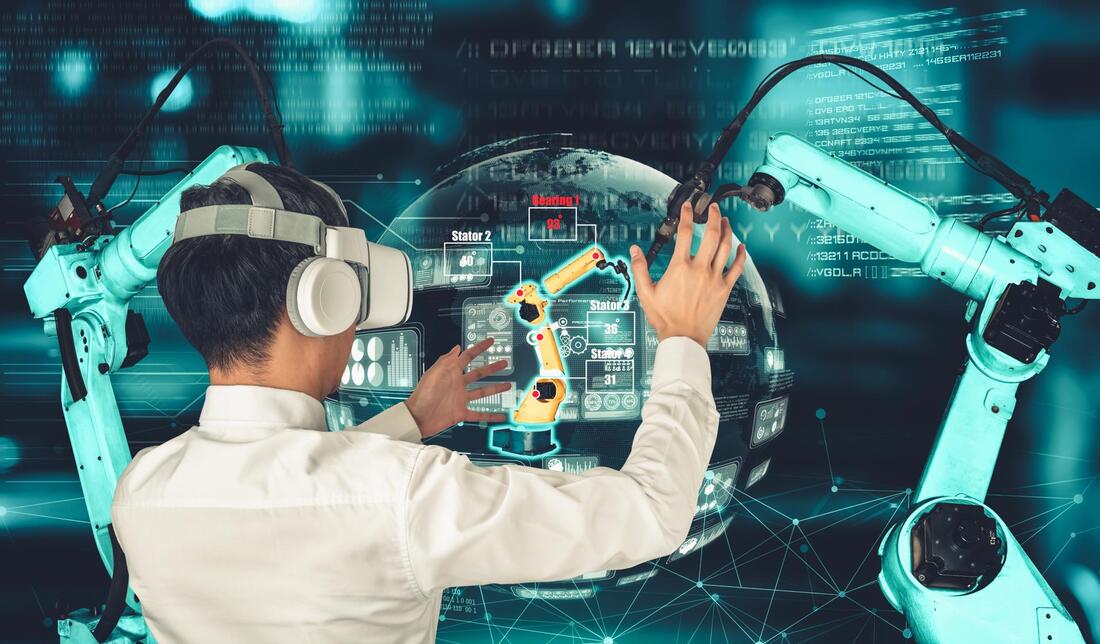




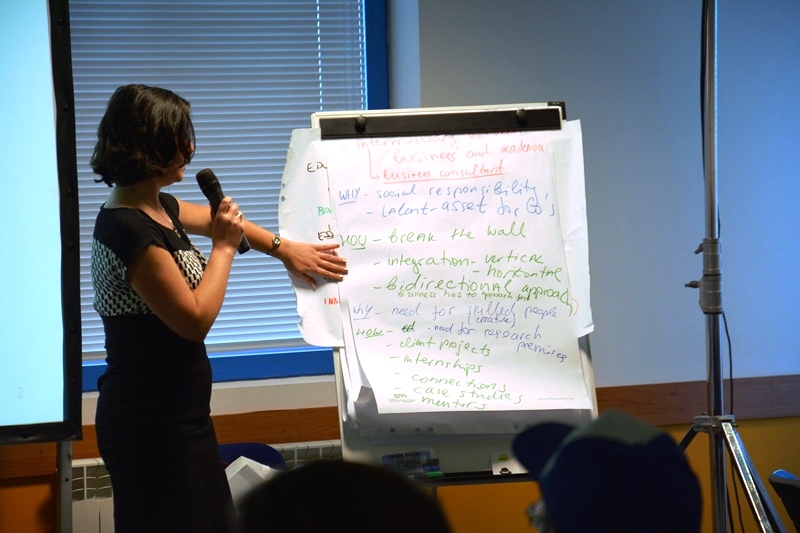
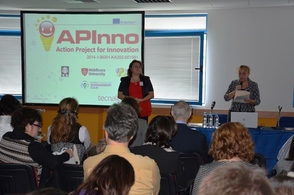
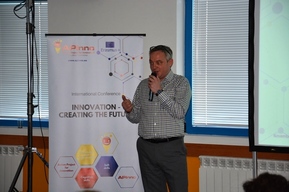
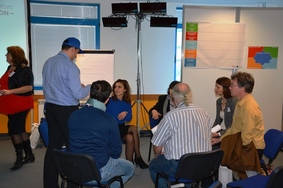
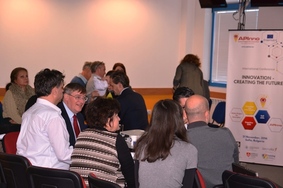
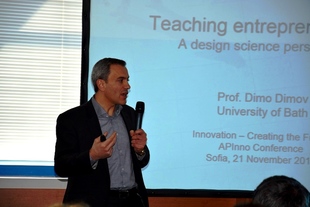
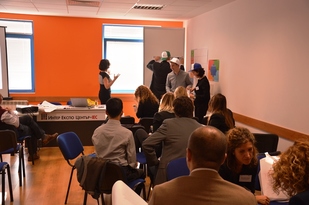
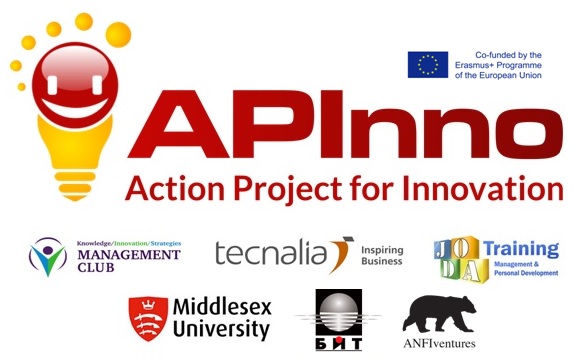





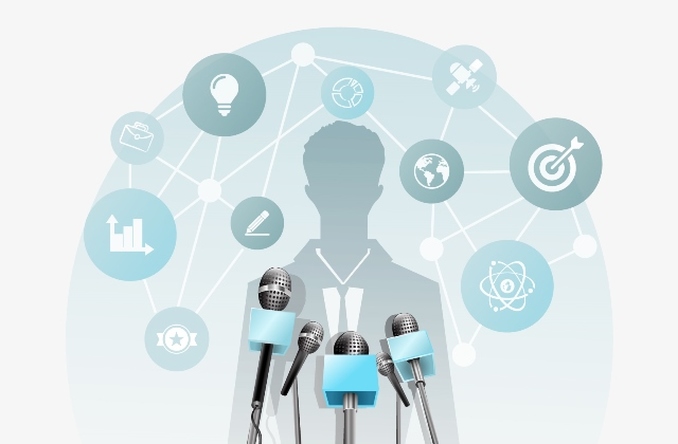






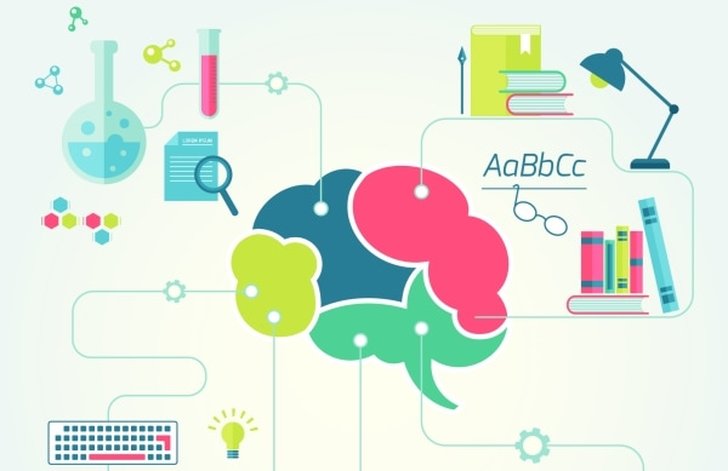
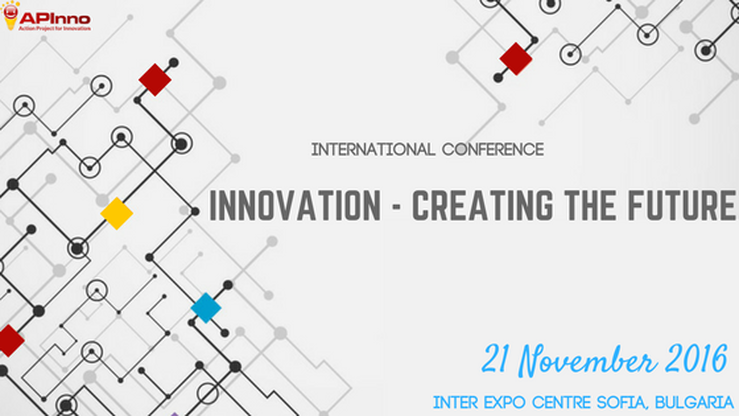
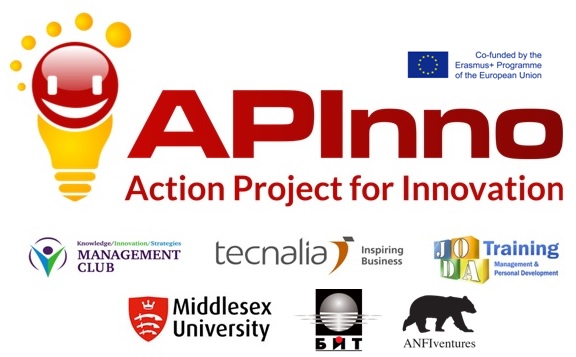
 RSS Feed
RSS Feed